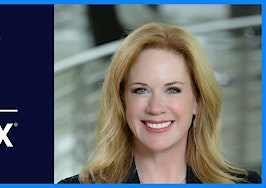- The right tech, systems and organization can make a virtual brokerage viable for any size operation.
- At the moment, no brokerage can be 100-percent virtual.
- Brick-and-mortar brokerages need to plan now to compete with growing virtual brokerages.
The storefront office with the flyers in the window has been the cornerstone of brokerage operations, from small towns to downtown locations in big cities.
Is it still a relevant way to do business? Do brokerages really need a brick-and-mortar location?
Yes. And no. Let me explain.
Asking questions and defining terms
Is it possible and profitable to have a virtual brokerage? Yes. Is the brick-and-mortar a model in need of change? Probably.
Should you change over? That depends.
Is the industry going that way? Sorry, my crystal ball is fuzzy (but — yeah, probably).
As noncommittal as it sounds, there is no one-size-fits-all brokerage model. Yet.
First, let’s define some terms in the main question.
When we talk about a “brokerage,” that could be a local, one-off shop or a national chain. So we need to look at whether this is practical at the local or national level.
Second, what’s a brick-and-mortar location? This could be a local office or go as far as the corporate headquarters.
What can be accomplished where? These scenarios also come with specific challenges and benefits.
Third, what’s a virtual office? It’s the inferred alternative to abandoning the brick and mortar. Where will all the parts of business be done and how?
Factors to consider
Let’s begin with some determining factors for a brokerage, small or large, considering the viability of going virtual: philosophy, partnerships and preparation.
Philosophy
A storefront office in the heart of a ski town with a long history of tourist and local traffic (and no intention of growing beyond the town) is going to be quite different from a brokerage serving a large neighborhood in a metro area.
Running a boutique shop where the locals come in and chat about snowfall and town gossip can be a comfortable way to do business, but walk-in traffic isn’t going to grow them past the people who stop by or have a connection in a limited sphere of influence.
And frankly, that’s fine for them.
This doesn’t mean that a brokerage such as this can’t employ tech and do some broader marketing. They’re just going to be paying for some prime real estate with a limited business model.
Other models thrive on the boutique principle, holding to the ideal that being “in the community” brings in clients.
It’s really a lifestyle choice. That presence costs a pretty penny in overhead, but employing tech and aggressive marketing can offset those costs.
You have to wonder what you could spend on marketing if you weren’t paying for an office, and what profits you may be setting aside for comfy couches and an espresso bar. Again, this comes down to what you want and how long you think this model will work.
If these models don’t apply to your brokerage, you have to ask yourself why you’re doing things “the way they’ve always been done.”
Could your brokerage — big or small — make a change and thrive in a virtual world?
Partnerships
An independent brokerage can change its methodology pretty easily. Systems and square feet can be altered without having to answer to a “higher power.”
If your agents are loyal and see the dollars and sense this would mean for them (no desk fees, less money spent on collateral and so on), you could work toward this change.
The big obstacle is the startup cost of the conversion. You might just have to join a bigger brokerage that’s already doing this.
If you own your own brokerage but have business partners, angel investors or other key players with a vested interest in how you’re running operations now, you’ll have to justify any major operational changes (and the costs involved).
Are they “old school” and unwilling to look at a virtual model? Will your team stay with you?
Local franchises and corporate-owned brokerage offices are in the toughest position.
Unless your company changes its philosophy of business, or offers you the flexibility to have it your way, you can’t make a switch even if it saves you a lot of money.
The Redefy franchise agreement accommodates a mix of brick-and-mortar and virtual offices, as franchisees see fit.
Preparation
Say your downtown was flooded and no one could get to the office. Could you still do every aspect of business?
This might give you a simplified idea of what’s needed for everyone to work independently.
Do you have the budget, infrastructure or technology to make the leap? This is probably the biggest hurdle for independents and national chains alike.
To be ready to go virtual tomorrow, you have to be making changes today and keep your eye on changing tech. This is probably the piece that holds back everyone who is satisfied doing business as usual.
Why would a brokerage go virtual?
There are some compelling reasons to make the change to a virtual brokerage.
Cost
Pure and simple: Without the overhead of a brick-and-mortar location, owners have better margins and agents have less expenses.
Sure, the tech will cost you upfront, and those fees will be ongoing.
But it’s a lot less than rent, utilities, desks, chairs, filing cabinets and so on. What agent really needs a desk in an office, anyway?
Visibility
While there is the idea of being visible in the community, why would you limit yourself to, say, 10 blocks of foot traffic?
If there’s a real estate brokerage every few miles, visibility doesn’t go that far. You are banking on someone actually coming by and seeing your office.
A virtual brokerage can still cater to a certain geographic area, but you’re going to concentrate those rent dollars on finding clients where they really are — on their computers, tablets and phones.
Expansion
The start-up cost of opening a physical location can halt or slow expansion. Without this expense, expansion becomes more cost-effective, and it takes less time for a new territory to become profitable.
Competition
Sure, the brick-and-mortar idea is working now. It’s expensive, but with enough business, it can be lucrative.
But where is the market going?
In 2015, Amazon captured 41.2 percent of the e-commerce market, with its closest competitor at 2.7 percent. Its expansion is on target to grow from $23 billion in 2015 to $530 billion by 2020.
So what’s a Best Buy to do? It can’t possibly expand fast enough to meet Amazon’s growth, and it’s already losing business.
MarketWatch tracked Best Buy’s revenue (in-store and e-commerce) at $40.34 billion with a decline to $39.53 billion in 2016.
What about clothes, something you have to try on? Amazon is expected to pass Macy’s as the No. 1 clothing retailer in 2017.
Could this happen to brick-and-mortar real estate brokerages? Definitely. Virtual brokerage eXp says it grew its agent count 151 percent year-over-year from the third quarter of 2015 to Q3 2016.
So how are you going to compete with companies that are already there or transitioning?
What it takes to abandon the brick-and-mortar model
If you’re starting from scratch or transitioning to a virtual operation, these key components need to be in place:
Technology
Well, that’s a big “duh.”
But it’s not just about having computers and a big server. You’ve got to have a totally integrated platform that keeps everyone on the same page in a secure, cloud-based format.
You’ll need a CRM that takes a transaction from contact to lead to client to closing; whether an inside sales associate (ISA) or an agent is making notes, the CRM has to update in real time.
For on-the-go agents and consumers who are serious phone users, a mobile platform has many benefits. The interface must be friendly for clients and agents alike.
“Our entire staff, other than four or five people, works via the cloud,” said eXp CEO Glenn Sanford. “They go to our cloud-based campus. We literally meet there every day.
“If you see somebody on campus, you can walk over to them and say ‘Hey, what’s going on? How did that last transaction go?’ Whatever standard conversation you have in your office, we have in ours.”
Companies with an integrated tech infrastructure, such as NextHome, are in a good position to consider a move to virtual brokerages.
Systems
One of the problems of traditional brokerages, especially the national chains, is outdated systems that rely on a lot of people, paper and the need to do business in the office.
One of the ways that Redefy has been able to do volume transactions simultaneously is by changing the agent’s role, simplifying it to a strictly sales and service role. Everything else is handled by in-house specialists.
Yes, in-house. But we’ve found that with the right systems, that can be simplified even further.
For instance, our Aurora office services five Colorado metropolitan statistical areas (MSAs). We see the value in exploring the virtual model further as the industry evolves.
Organization
Every brokerage has its own organizational structure. Is it set up to make a virtual office work?
While the “boots on the ground” of agents is needed to put a real face on the virtual brokerage, leadership and support positions would need to be strategically placed so that nothing’s lost without face-to-face contact.
This is a pretty big shake-up and will require you to think on a national or global scale even if you’re still at a local level.
People
You have to have agents willing and able to work off-site, and who are comfortable with changing tech. The average agent age is 58, according to the National Association of Realtors.
Although there are techies at every age, you’ll find that a good percentage won’t like the idea of a virtual brokerage. As the national average drops to a more tech-friendly, “off-site” generation, it may be easier to recruit agents comfortable with this model.
Local versus national problems
On a local level, sure, this is possible, depending on your philosophy and ability to make the switch.
You probably don’t have an IT department to create a custom solution, so you’re going to have to go third-party for every aspect of the business. Plus, you’ll have to be able to manage people remotely.
On a national level, you’ve got the bandwidth for the tech. But systems and mindsets are hard to change.
Strong leadership and a transition plan are critical.
And if the big players like Re/Max or Keller Williams launched a virtual, secondary product? Sanford points out, “It would cannibalize their existing franchisees if they competed against them with a virtual model.”
Why you can’t be 100-percent virtual right now
Even if you have the tech, systems and organizational structure to go virtual in brokerage transactions, there are some things that will force you to have a physical location. Even eXp has a minimal staff group in two locations because not everyone else in the world has gone digital.
For example, the IRS still requires a physical location; you can’t force your employees to get paid via direct deposits, individuals and companies still write checks, and not all regulatory agencies are 100-percent digital.
So, there’s a certain percentage of your dealings that will require a place to receive mail, deal with paper and so on.
Does it have to be office space? No. But technically speaking, a brick-and-mortar “base” has to exist somewhere.
Whether or not you think brokerages need a brick-and-mortar location, the fact is that virtual brokerages already exist in various forms.
The question isn’t whether this is viable. It’s really whether your brokerage is prepared to compete, adapt or evolve.
Chris Rediger is the co-founder and president of Redefy Real Estate. Learn more about Chris and Redefy on Twitter or Facebook.












